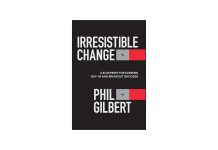
For a lot of people, the terms “sales” or “business development” make them feel uncomfortable. To others, it could be an almost slimy sensation. Some people think of sales as “sales machines” and hustlers who earn record-breaking results. You know, the kind of people who say they can sell ice cream in a blizzard.
However, these “sales machines” are the exceptions to good sales practice rather than the rule. The so-called business relationships they cultivate are not sustainable. No one wants to be hustled twice!
On the other hand, if you want to foster sustainable, abundant, and prosperous business relationships, you need to feel comfortable doing something that provides value. This kind of selling requires you to be relational—not transactional—and deliver on confidence, rapport, and accountability.
By feeling confident, building rapport, and being accountable, people will want to work with you. Moreover, when done correctly, these three pillars of sales release brain chemicals like oxytocin that build the feeling of safety, trust, and willingness to continue in a relationship.
Confidence
Confidence means a belief in what you’re doing. If you don’t believe in what you’re selling, then the person you’re selling to won’t trust you or buy from you.
Confidence is built on learning, practice, and experience. At first, you won’t feel confident. That’s why you need to try, fail, learn from your failure, and try again. That builds resilience, which underlies your confidence.
However, once you’ve built up your confidence, you can build genuine and lasting connections with the people you are working with. When we are confident, others sense it. They want to engage with us.
On the other hand, if you don’t believe in yourself or your product, that lack of confidence will erode your success and the long-term success of any relationship.
Rapport
Rapport is about building a genuine, authentic, and trusting connection with others. It’s not just communication. It’s how you communicate, listen, and respond.
Rapport can be built beforehand by doing research on someone and learning about their interests and background. It can also be created in real time by being curious. When we are curious about people, they feel important, and we learn more about what they like.
Other ways of building rapport are honoring and listening, acts of service, and acts of kindness.
Accountability
Accountability is an understanding that you own your actions, you’re responsible for keeping your agreements, and you meet expectations with others. It’s all about reliability, keeping your word, and doing what you say.
Warren Buffet talks about reputation a lot. He says, “It takes 20 years to build a reputation and 5 minutes to ruin it.”
Accountability is the foundation of your reputation. Reputation is based on your record of meeting expectations and treating others in a way that matches what you promise. When you’ve built a good reputation, your sales become easier.
If you think sales is all about hustling and a game of winners and losers, you won’t last long in the business. Those people who become successful over the long term know how to build relationships, and they do it through confidence, rapport, and accountability.



